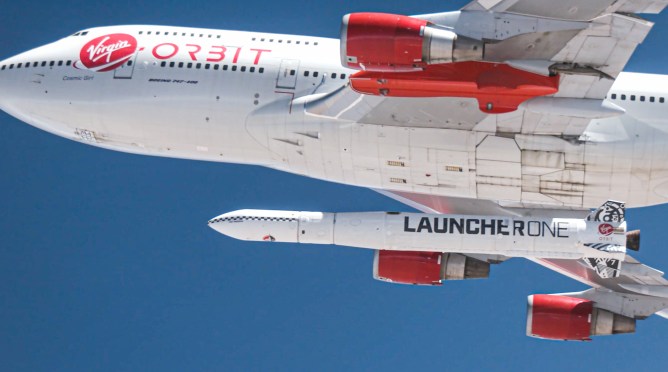Virgin Orbit Faces Layoffs Amid Funding Struggles
Troubled Space Company Cuts 85% of Workforce to Reduce Expenses
Virgin Orbit, the brainchild of billionaire Richard Branson, is facing severe financial struggles. In a bid to reduce expenses and stay afloat, the company has announced that it will be laying off approximately 85% of its workforce.
According to an audio recording obtained by CNBC from an employee all-hands meeting on Thursday afternoon, Virgin Orbit CEO Dan Hart choked up while announcing the decision. "We have no choice but to implement immediate, dramatic, and extremely painful changes," he said. The call was reportedly one of the most difficult all-hands meetings in his life.
Background on Virgin Orbit’s Funding Issues
This latest development comes just two weeks after Virgin Orbit furloughed its entire workforce and entered an "operational pause" to find additional funding. There were hopes that Matthew Brown, a Texas-based venture capitalist, would come to the rescue, but those talks have since dissolved.
Virgin Orbit filed with the U.S. Securities and Exchange Commission on Thursday, confirming that it was unable to secure further funding. The company’s struggles are evident in its financial performance, with shares plummeting to $0.34 from $1.32 at the beginning of the month.
Financial Implications of Layoffs
The layoffs will come with a significant price tag for Virgin Orbit. The company will be required to pay around $8.8 million in severance payments and employee benefits costs, as well as an additional $6.5 million related to outplacement services and regulatory compliance.
To cover these immediate expenses, Virgin received a $10.9 million injection from Virgin Group, the umbrella company that oversees Branson’s various businesses. Despite this, it appears that even Branson has reached his limit in funding the struggling space company.
Virgin Orbit’s Background and Achievements
Virgin Orbit can claim four successful missions using its unique system, which involves a modified Boeing 747 releasing a rocket mid-flight. The company’s most recent mission from Cornwall, U.K., ended in failure due to an issue with the rocket’s second stage, posing a significant blow to Virgin’s plans for further launches this year.
Challenges Facing Virgin Orbit
The struggles faced by Virgin Orbit are a microcosm of the broader challenges facing the space industry. With private companies competing for funding and attention, the pressure is mounting on companies like Virgin Orbit to deliver results.
However, the success of Virgin Orbit’s unique system has garnered significant interest from potential customers. Despite its recent setbacks, the company still has a loyal customer base and a strong brand reputation.
The Future of Virgin Orbit
As Virgin Orbit navigates this difficult period, it is uncertain what the future holds for the company. While some industry experts predict that the space industry will continue to grow and evolve, others are less optimistic about the prospects for struggling companies like Virgin Orbit.
One thing is clear: the space industry is becoming increasingly competitive, with new players emerging all the time. To stay afloat, companies must innovate, adapt, and secure funding to remain relevant in this rapidly changing landscape.
Key Players Involved
- Richard Branson: Founder of Virgin Orbit and majority owner.
- Dan Hart: CEO of Virgin Orbit.
- Matthew Brown: Texas-based venture capitalist who was involved in talks with Virgin Orbit about potential funding.
Industry Trends and Insights
The space industry is becoming increasingly complex, with new technologies emerging all the time. Companies like Virgin Orbit must stay ahead of the curve to remain competitive.
Some key trends and insights in the space industry include:
- Rise of private companies: Private companies are playing an increasingly important role in the space industry, with many launching successful missions and attracting significant investment.
- Growing competition: The space industry is becoming more crowded, with new players emerging all the time. Companies must innovate to stay ahead of the competition.
- Increasing focus on sustainability: As concerns about climate change grow, companies are placing a greater emphasis on sustainable practices in the space industry.
Conclusion
Virgin Orbit’s decision to lay off 85% of its workforce is a stark reminder of the challenges facing the space industry. While some experts predict that the industry will continue to grow and evolve, others are less optimistic about the prospects for struggling companies like Virgin Orbit.
As the space industry continues to change and adapt, one thing is clear: innovation, adaptation, and securing funding will be essential for companies to remain relevant in this rapidly changing landscape.

























